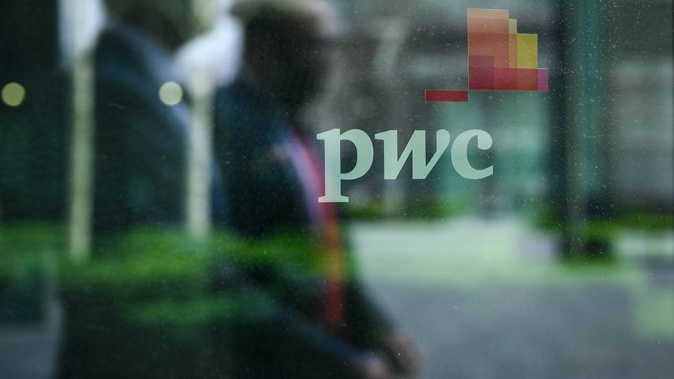
Law firm Russell McVeagh and accounting company PwC have introduced a compulsory Covid-19 vaccination policy for all staff and visitors to its offices, affecting thousands of people.
PwC, which employs more than 1600 people across New Zealand, announced its vaccination policy will require staff and contractors to be fully vaccinated against Covid-19 if they wish to work from a PwC office or client site.
The policy, which comes into effect from December 1, will also apply to visitors at any PwC office.
"Our responsibility is to keep all of our people safe. Introducing this policy will enable our people who wish to work from our offices to feel safe coming back into the workplace as government alert levels permit," chief executive officer and senior partner Mark Averill said in a statement.
"Anyone who isn't able to work at a PwC office or client site under this policy can work remotely. We have flexibility principles, and the technology, in place to allow our people to choose where, how, and when they work."
PwC said it has communicated the policy to its staff earlier this week and will be working with its teams over the coming weeks on how it is implemented. The company said it has strongly encouraged staff to be vaccinated at the earliest opportunity and supported this by offering a half day's paid leave for each vaccination and onsite vaccinations in its offices outside Auckland and Waikato.
"A number of our people are actively engaged in efforts to lift vaccination rates across the country, particularly for our more vulnerable communities," Averill said.
"What's clear is that vaccinations will be how we move safely into an environment with less restrictions for businesses, our communities and each of us personally."
Russell McVeagh's chief executive officer, Jo Avenell, also announced a similar policy.
She said from November 1 only people who have received both doses of the Covid-19 vaccine will be able to enter the firm's Auckland and Wellington offices.
"We recently conducted a survey of all our partners and staff on an anonymous basis and the feedback was clear – the vast majority of our people [98 per cent] are intending to get fully vaccinated, many are concerned about unvaccinated people being in our office and a number of people live with or come into contact with people who are considered vulnerable," Avenell said in a statement.
She added the board and partners "strongly support vaccination" to help New Zealand progress towards reducing the risk of Covid-19 in the community and living in a safer, more open environment and economy.
"We also acknowledge that there are some people [in our firm and the wider community] who are currently uncertain about vaccination, do not wish to get vaccinated, or are not able to get vaccinated for medical reasons.
"We respect the rights of people to choose whether or not to vaccinate. Therefore we want to encourage people to advise us of their vaccination status before they enter our offices, so we are able to proactively manage any potential risks for all concerned."
Avenell said the firm was also mindful that this is new territory for New Zealand and Government guidelines are adapting and changing regularly as the pandemic develops.
Russell McVeagh confirmed to the Herald the policy applies to all staff and visitors to the office, including contractors and suppliers.
/cloudfront-ap-southeast-2.images.arcpublishing.com/nzme/RQ6QJYYLHGPEBMJGEHSSVX7KZQ.jpg)
The central city tower block that is home to Russell McVeagh's Wellington offices. Photo / Mark Mitchell
In Australia, Westpac and the Commonwealth Bank have mandated Covid-19 vaccination for its staff, which the ABC reported would affect about 76,000 workers across the country.
Commonwealth Bank's New Zealand subsidiary ASB said in a statement it is encouraging staff to get vaccinated and ensuring its people have the necessary flexibility and information to do so.
From February next year, Air NZ said all international passengers will need to be fully vaccinated, but the airline is yet to decide about domestic passengers.
Legal experts spoken to by the Herald have said employers must carry out a thorough health and safety assessment and consult staff before implementing a vaccination mandate for its business.
This should determine which roles are high-risk, taking into account the likely exposure, as a part of their role, to Covid-19 and the likely risk to those around them, such as vulnerable or high-risk customers.
The Government this week announced a mandatory vaccination order for hundreds of thousands of health and education workers.
Other roles mandated by Government order requiring vaccination include managed isolation and quarantine (MIQ) facilities and other isolation facilities; affected seaports; the airside area and some other higher-risk work at affected airports; and accommodation services where specified aircrew members are self-isolating.
The Government is still considering whether a person's vaccination status will be needed to be shown to enter hospitality venues, but has said it will be required for large scale events such as summer festivals.
Take your Radio, Podcasts and Music with you









